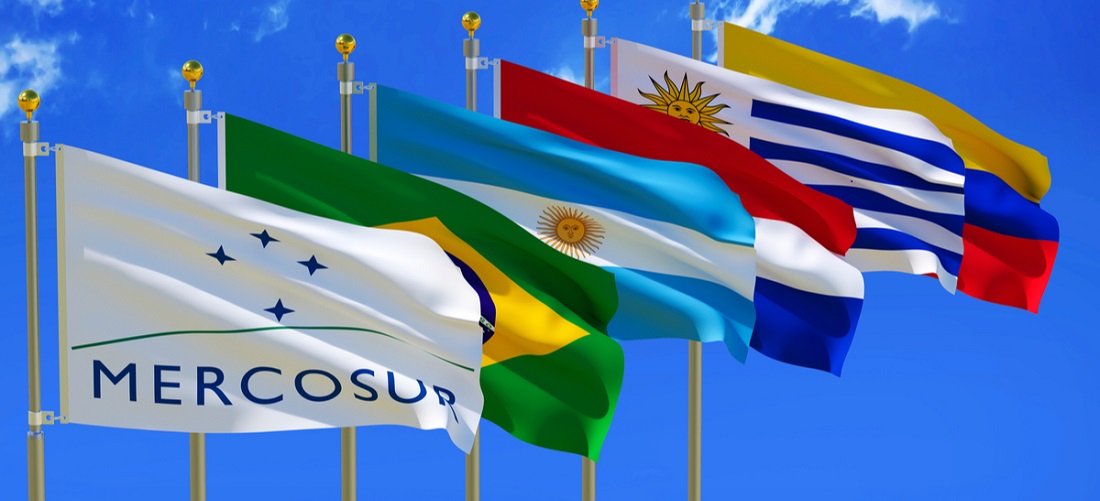
Uruguay puts Mercosur in crisis with uncertain end
Jul, 10, 2021 Posted by Ruth HollardWeek 202128
On the eve of the Mercosur Presidents’ Summit at a meeting of foreign ministers, the Uruguayan government surprisingly announced its decision to start negotiations of trade agreements with countries outside the bloc. In the eye of the governments of Argentina and Paraguay, the initiative clearly violates one of the fundamental rules of Mercosur: the demand for consensus.
Three decades after the signing of the Treaty of Asunción, the bloc’s founding act, the four partners are plunged into a crisis with an uncertain outcome. The understanding so far was that trade agreements can only be negotiated jointly by the four members with other countries and blocs.
Jair Bolsonaro’s government has always been in agreement with the Uruguayan demand for freedom of individual negotiation but has not yet officially commented on the unexpected statement by President Luis Lacalle Pou’s government.
According to sources who attended the meeting of foreign ministers, the Brazilian Minister of Foreign Affairs, Carlos França, referred to the Uruguayan government’s statement as “untimely”. Finance Minister Paulo Guedes and his team did not comment.
“At the same time that it claimed its presence in Mercosur, Uruguay announced that it will start talking with third parties to negotiate extra zone agreements [outside Mercosur],” says the statement by the Lacalle Pou administration.
The neighboring country’s argument is that resolution 3200, which determines that free trade agreements with other countries and blocs must be adopted by consensus, was never internalized by the full members of Mercosur, therefore, it is not in force.
According to sources at Casa Rosada, Uruguay’s attitude was interpreted as “rupturist” and will not be tolerated. “If this position is maintained, Uruguay will be breaking up Mercosur,” said a source in the government of President Alberto Fernández.
Uruguay’s action takes place in moments of delicate crisis in the bloc. For several months, the governments of Brazil – backing Uruguay – and Argentina have been discussing reforms to make the Mercosur pillars more flexible, with an emphasis on the Common External Tariff (TEC, which taxes products from outside the bloc).
Brazil advocates an immediate linear reduction of 10% in the TEC (today, on average, 11.7%) and a second 10% cut at the end of the year. Argentina, which at the beginning of the conversations refused to discuss cutting tariffs given the very serious recession that is plaguing the country in the midst of the pandemic, finally accepted an initial reduction of 10%, but only about 75% of the tariff universe, leaving from outside final goods.
The Fernández government does not want to set a date for a second adjustment to the TEC, emphatically opposing Brazil’s goal of doing so at the end of 2021. Uruguay’s request to be able to negotiate with other countries and blocs without requiring a consensus is supported by Brazil and flatly rejected by Argentina and Paraguay.
Source: Valor Econômico
To read the full original article, visit the link:
-
Ports and Terminals
Feb, 15, 2023
0
Port of Maceió registers an increase of almost 10% in cargo handling in 2022
-
Automotive
Mar, 19, 2020
0
Lack of parts causes Scania to halt production at São Bernardo do Campo unit
-
Ores
Sep, 13, 2019
0
Vale discontinues part of operations at Brucutu mine
-
Economy
Aug, 30, 2024
0
Brazil records 19.5% hike in container imports in 2024



